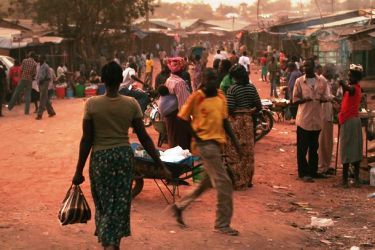South Sudan gov’t employees to get 300% pay increase
January 28, 2016 (JUBA) – South Sudan government has announced a pay rise of up to 300% to cater for devaluation of local currency, the South Sudanese pounds (SSP), that was effected last month despite the economic crisis and lack of money.

“These are the people with lower income and that this increment should by 300% that is the basic pay times three this is what was agreed and this will be in effect from February 2016,” said information and broadcasting minister, Michael Makuei Lueth.
A primary school teacher of grade 12, for example, who is being paid 600 SSP (about $30 a month) will now receive 1,800 SSP, equivalent to about $95 a month, effectively in January. Teachers say the new pay won’t make a difference as prices of commodities surge each day due to economic collapse.
John Deng, a grade 12 teacher said a 50 kg bag of white flour imported from Uganda costs 1,500 SSP, almost taking all his would be new salary, while a kilo of beans is sold at 15 SSP and a litter of oil is at 20 SSP.
“Even if we (teachers) receive SSP 3,000 a month, it won’t be enough. You will not have money to take your child to a clinic or buy a painkiller if he or she is sick,” said Deng.
“But I think it is a first step to addressing the low pay for teachers and other government employees,” he added.
South Sudan devalued its currency in mid-December 2015, allowing the market forces of demand and supply to determine the rate of U.S dollars against South Sudanese Pounds.
Currently, the central bank sells $1 at 19.5 SSP according to Tuesday auctioning rates to private banks.
In the black market, $1 is sold at 28 SSP on Thursday, an increase by ten figures since the free floating policy was adopted by central bank and ministry of finance last month.
The government has not explained how it will get the money for the increment of the employees salaries as it runs out of cash. Previously, employees, especially in some of the 10 states, go for months with no salary payment.
South Sudan economy began to deteriorate when the conflict started in December 2013 – forcing oilfields to close in Unity state, which has the most quality and expensive type of crude oil in the young country.
The lowering price of crude oil in the international market, dropping to less than $30 per barrels last week, coupled with the situation that Sudan takes $24.5 for pipe fees and compensation for financial loss, according to the cooperation agreement it signed with South Sudan in 2012, has even made the matter worse.
The only foreseeable hope for the government is to implement the peace agreement and form a transitional government of national unity which will then allow the international community to release hundreds of millions of dollars as assistance to the new government.
However, formation of the government may not take place soon as the parties have been wrangling over amendment of the constitution with the government wanting to insert its new 28 states into the constitution while the opposition factions said this would be a violation of the peace deal signed based on the existing 10 states.
A new constitution, which shall incorporate the provisions of the peace deal, would then become the basis for formation of a new unity government as the current transitional constitution does not recognize a transitional government.
The parties have not also implemented the required security arrangements, particularly in the capital, Juba, where the deal calls for withdrawal of government troops and deployment of new joint military and police forces.
The government said it could not implement the security deal due to lack of money to establish military camps 25km outside the capital and called upon the international community to provide support in the implementation of the security arrangements.
(ST)
